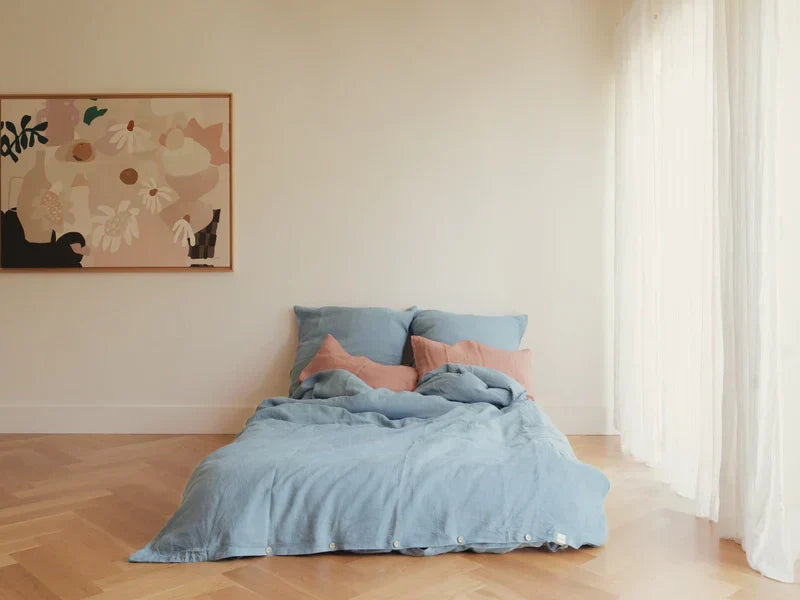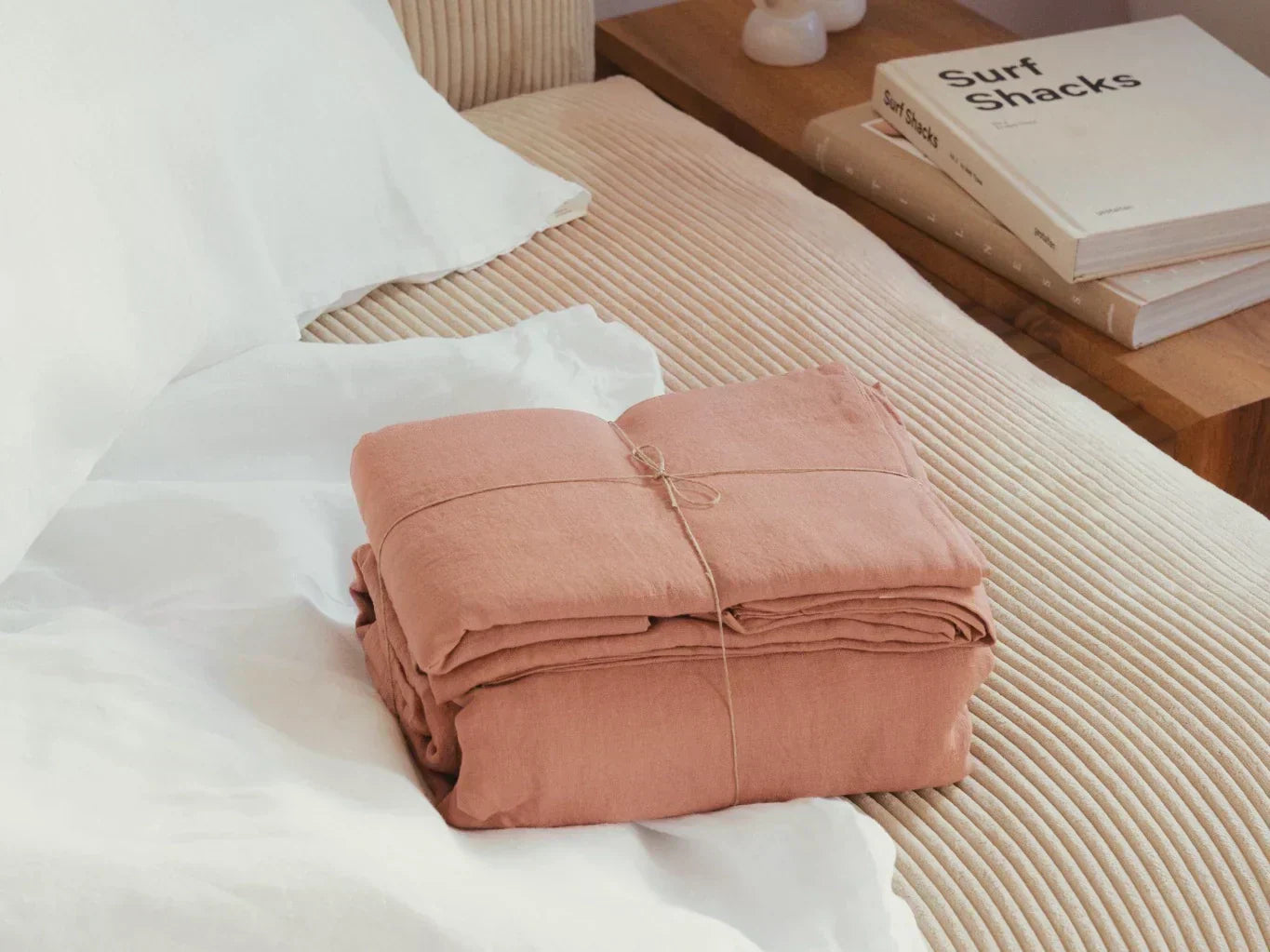Why sustainable linen bedding is essential for a restful sleep
On average, we spend over 24 years of our lives sleeping. We use this time not only to dream and process the day, but also to relax and recharge our energy reserves. In doing so, we come into direct contact with our bed linen night after night. In a world where we strive to banish harmful substances from our everyday lives, our choice of bed linen should also be made from sustainable, organic materials.
The advantages of linen – a tried and tested fabric rediscovered
Linen is a material derived from the fibers of the flax plant. This plant has been cultivated for thousands of years and valued for its sturdy fibers. Historically, linen has been used in many cultures, from the ancient Egyptians, who valued it for its cooling properties and durability, to European noble houses, where it was considered a symbol of purity and luxury.
Modern processing methods have improved linen even further. Techniques such as "stonewashing" make linen softer and very pleasant on the skin without losing its natural benefits. This pre-washing with stones breaks up the rigid fibers of the linen and results in a supple texture that tempts anyone to spend a relaxing day in bed.

Sleep better with linen
Linen bedding offers numerous physiological benefits. Not only is it breathable, but it also regulates temperature. This means that it keeps you cool in summer and comfortably warm in winter. These properties make linen ideal for people who tend to overheat or feel cold at night.
Linen is also hypoallergenic and antibacterial, which makes it particularly suitable for allergy sufferers and people with sensitive skin. It does not attract dust and therefore stays clean and fresh for longer. Thanks to these properties, linen bed linen needs to be washed less often, which saves water and protects the environment.

Sustainability and environmental friendliness of linen
Linen is one of the most environmentally friendly fabrics in the textile industry. The flax plant from which linen is made requires significantly fewer pesticides and water than cotton. Flax can grow in poor soil, which reduces the need for chemical fertilizers and allows agricultural land to be used more efficiently.
In addition, the entire process from sowing the flax to the finished linen fabric is sustainable. The flax is often harvested by hand, which reduces energy consumption. The fiber itself is completely biodegradable and can be returned to the environment at the end of its life cycle without harmful residues.
Why linen instead of cotton?
Compared to cotton, linen has a smaller environmental footprint. Although linen is initially more expensive to produce, it is characterized by its durability. A high-quality linen bed set can last for decades if well cared for. Investing in linen is therefore not only good for the environment, but also for your wallet, as the products need to be replaced less often.

Discover our Oeko-Tex certified linen bedding
At kanela we offer a selection of Oeko-Tex certified linen bedding available in a range of colours and patterns. Our bedding combines timeless style with practical functionality so you'll love it for years to come. Experience for yourself how linen bedding can improve your sleep while reducing your carbon footprint.








Leave a comment
All comments are moderated before being published.
This site is protected by hCaptcha and the hCaptcha Privacy Policy and Terms of Service apply.